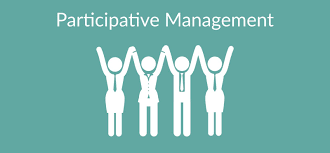
Thematic focus - The 73rd and 74th constitution Amendment Act aims at grassroots democracy and transforms the representative democracy into participatory democracy. It provides greater opportunities to the local people to participate in the democratic process. It is a revolutionary concept as it allows community participation in the planning, implementation, monitoring and evaluation of development initiatives. As per this act citizen participation is needed for improving the quality of the services provided by local government and citizen participation can only be ensured through social mobilization at the local level.
Social mobilization strengthens the participation of people at the grassroots in local decision-making, improves their access to social services and efficiency in the use of locally available financial and economic resources, and enhances opportunities for asset-building by the poorest of the poor. However for effective community participation not only social mobilization is needed but sensitization of government machinery is equally important. Indeed government functionaries in India have primary role in setting up of priorities, making decisions, planning of action in development projects. In view of that, capacity building programmes for various governmental functionaries in community participation and social mobilization may bring about changes in their attitudes, behaviour and will help them to assess the local situation, to learn about the mobilization methods & techniques and community management skill.
Aim
This course is designed to acquaint the participants with the participatory model of governance. It will highlight the role of social mobilisation and participatory management in delivering goods and services at the local level.
Objectives
At the end of the training Programme the participants will be able to;
Contents
Expected Outcome
Develop critical thinking skills that will help participants to develop the right kind of attitude to help the people at the grass root level.
Level of participants
Officers of All India Service, officers working under the Central Staffing Scheme and officers of Central Secretariat Service (CSS)
|
Day/Date |
Duration |
Session Description |
Speaker |
|
Monday
|
0930-1000 |
Registration |
|
|
1000-11.15 |
Inaugural Session Briefing and Experience Sharing |
|
|
|
1145-1300 |
Community Participation and its relevance’s – Principle and Concept |
|
|
|
1300-1400 |
Lunch Break |
|
|
|
1400-1530 |
Social Mobilisation in development initiatives: Historical perspective |
|
|
|
1545-1700 |
Self Help Groups - Relevance, Structure & Importance |
|
|
|
|
1700-1730 |
Group Formation |
|
|
Tuesday
|
1000-1130 |
Enhancing women’s participation |
|
|
1145-1300 |
Community participation strategies in different Mission schemes |
|
|
|
1300-1400 |
Lunch Break |
|
|
|
1400-1530 |
Participatory local resources management |
|
|
|
1545-1700 |
Participatory local resources management |
|
|
|
1700- |
Group Work |
|
|
|
Wednesday
|
1000-1700 |
Field visit |
|
|
1700- |
Group Work |
|
|
|
Thursday |
1000-1130 |
Planning for disaster preparedness and mitigation |
|
|
1145-1300 |
Financial inclusions |
|
|
|
1300-1400 |
Lunch |
|
|
|
1400-1530 |
Case study Discussions |
|
|
|
1545-1700 |
PRA tools |
|
|
|
1700- |
Group Work |
|
|
|
Friday
|
1000-1115 |
Building Partnerships for Sustainable Development |
|
|
1115-1300 |
Group presentation |
|
|
|
1300-1400 |
Lunch Break |
|
|
|
1400-1530 |
Group presentation |
|
|
|
1545-1700 |
Feedback, Evaluation and Valedictory Session |
|